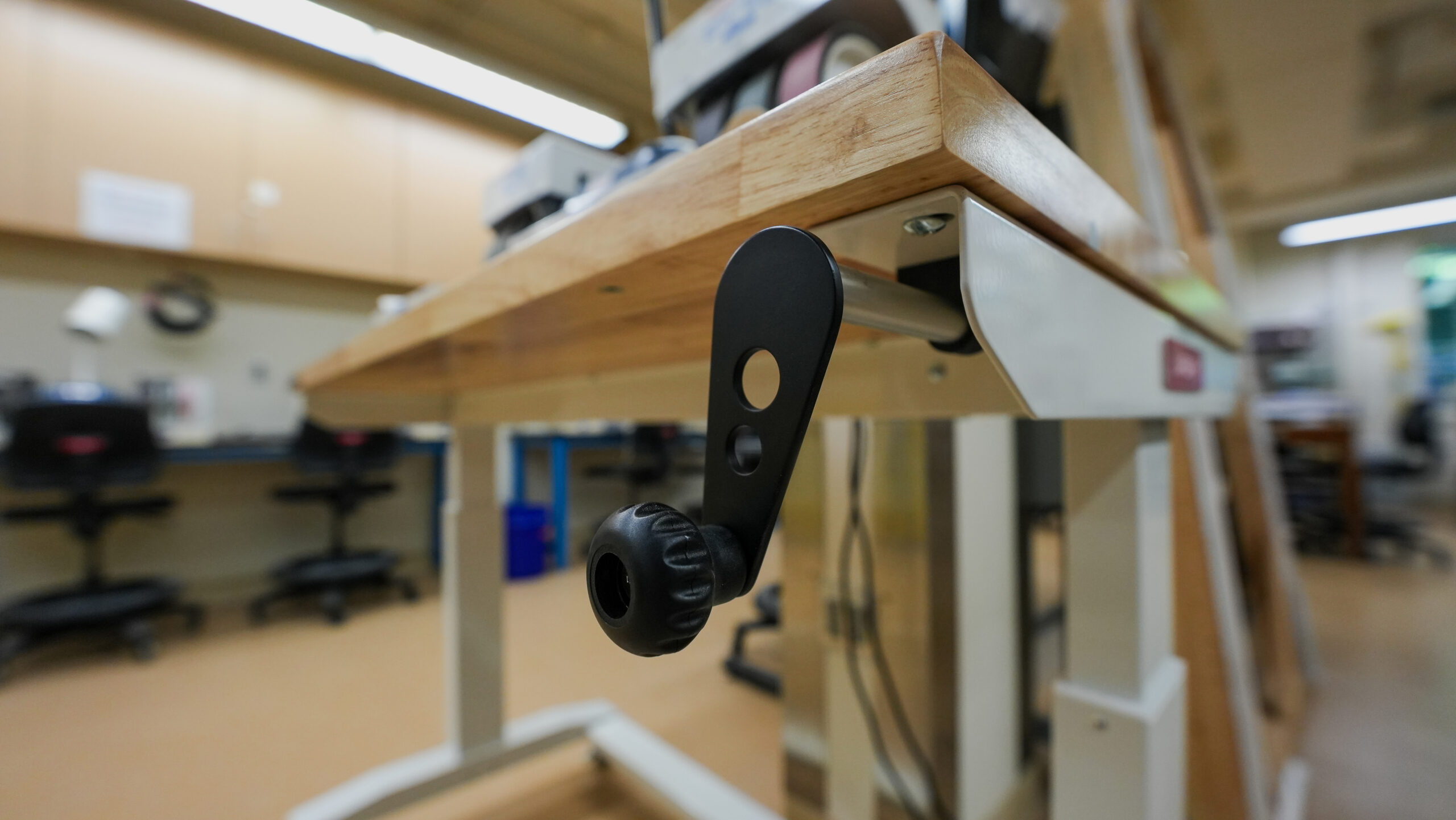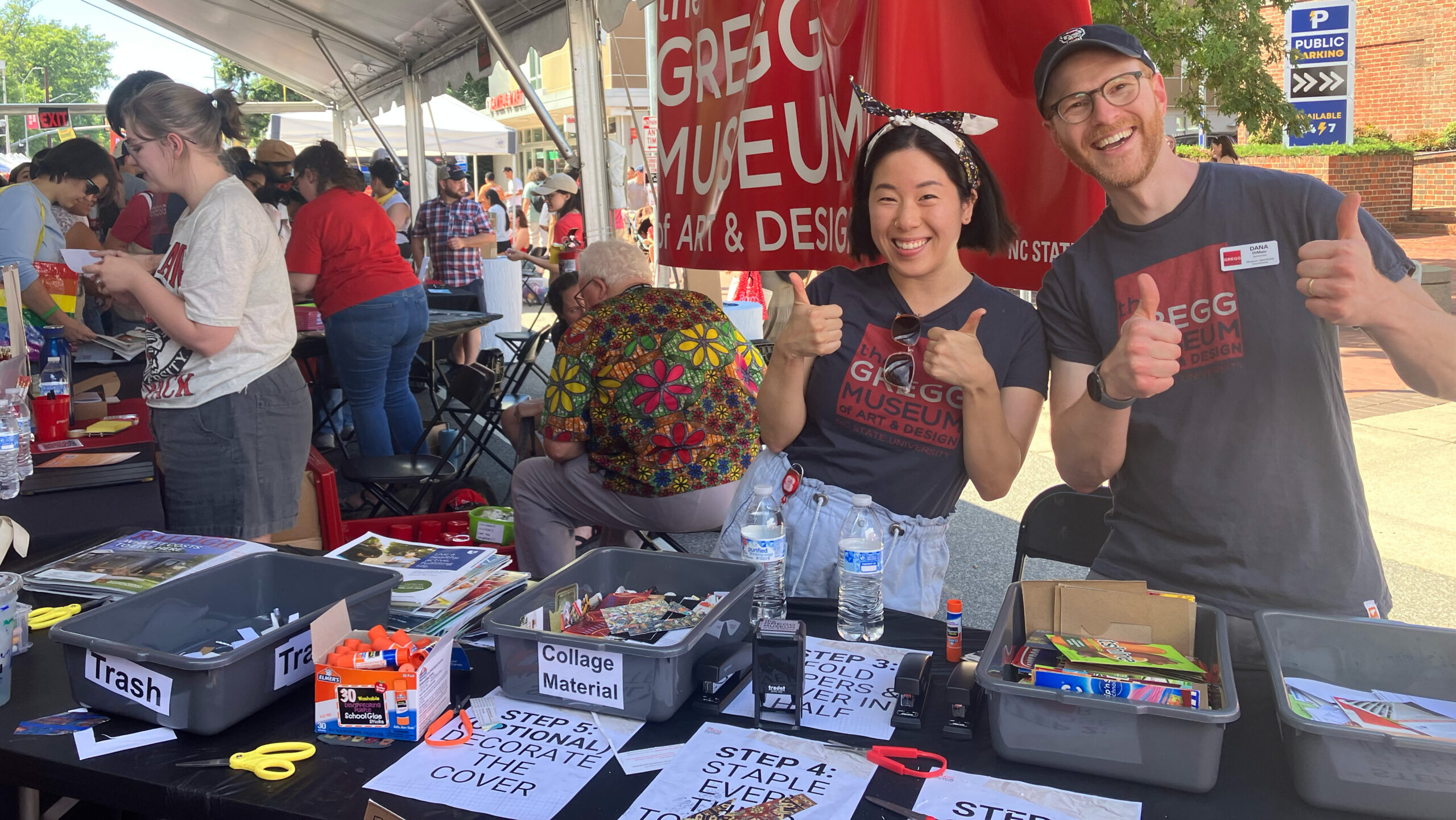Celebrating 100 Years of Music
This school year, NC State is celebrating the rich history and tradition of its music program, now named the Department of Performing Arts and Technology, that spans the past century.
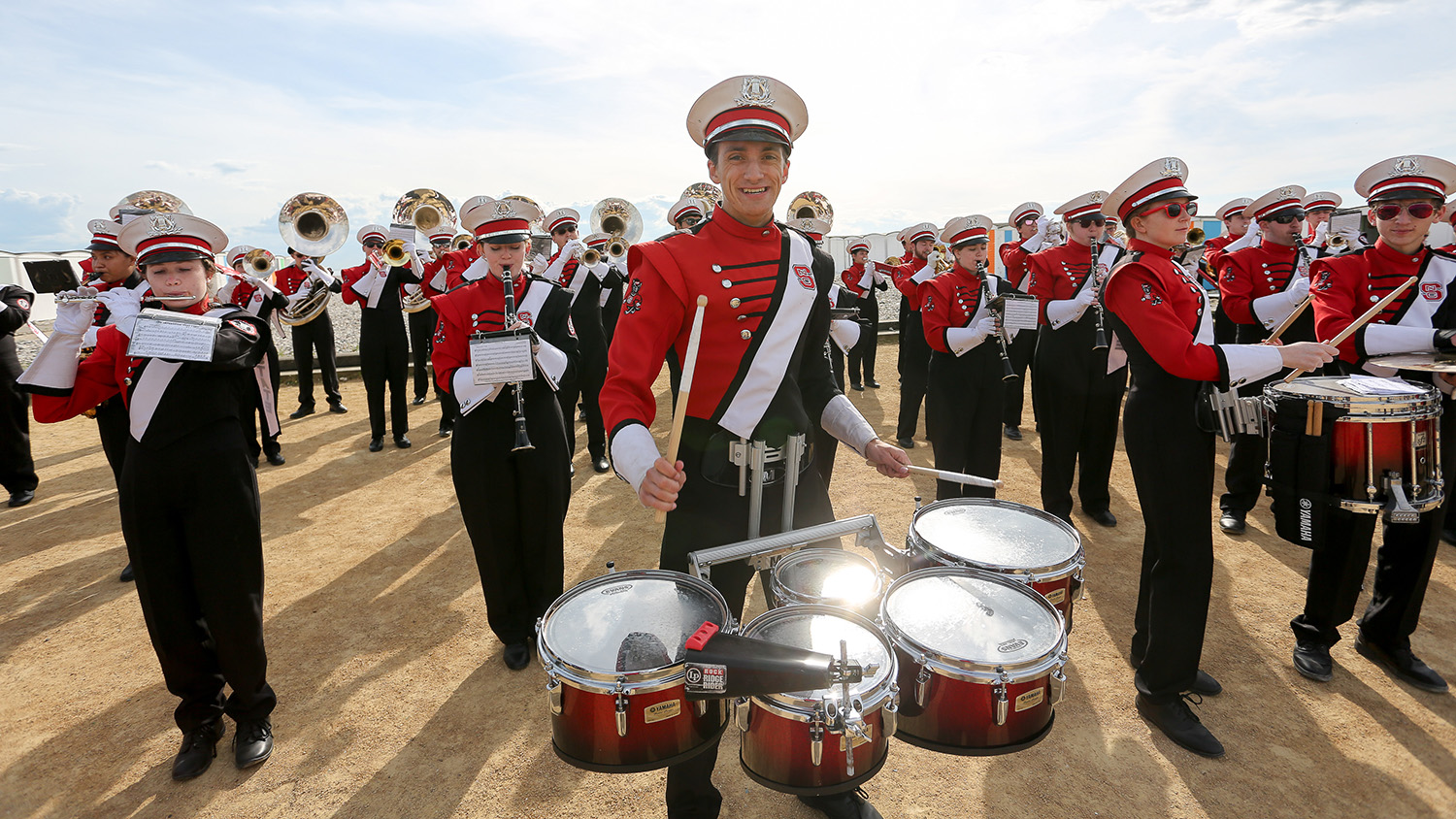
As fans took their seats for the Wolfpack football team’s home opener at Carter-Finley Stadium, the music of the “Power Sound of the South” NC State marching band fired up the crowd and ushered in a new season.
Months earlier and thousands of miles away, members of the NC State Chorale dazzled European music lovers in Italy, performing in historic venues in Rome, Florence, Venice and Vatican City. The school year prior, the NC State Jazz Orchestra shined at the esteemed Midwest Clinic in Illinois.
All of the programs and unique student experiences are part of a rich, impactful music history at NC State that now spans over a century. This school year, NC State’s music department, now named the Department of Performing Arts and Technology (DPAT), is celebrating “100 Years of Music,” culminating with a spring 2025 showcase.
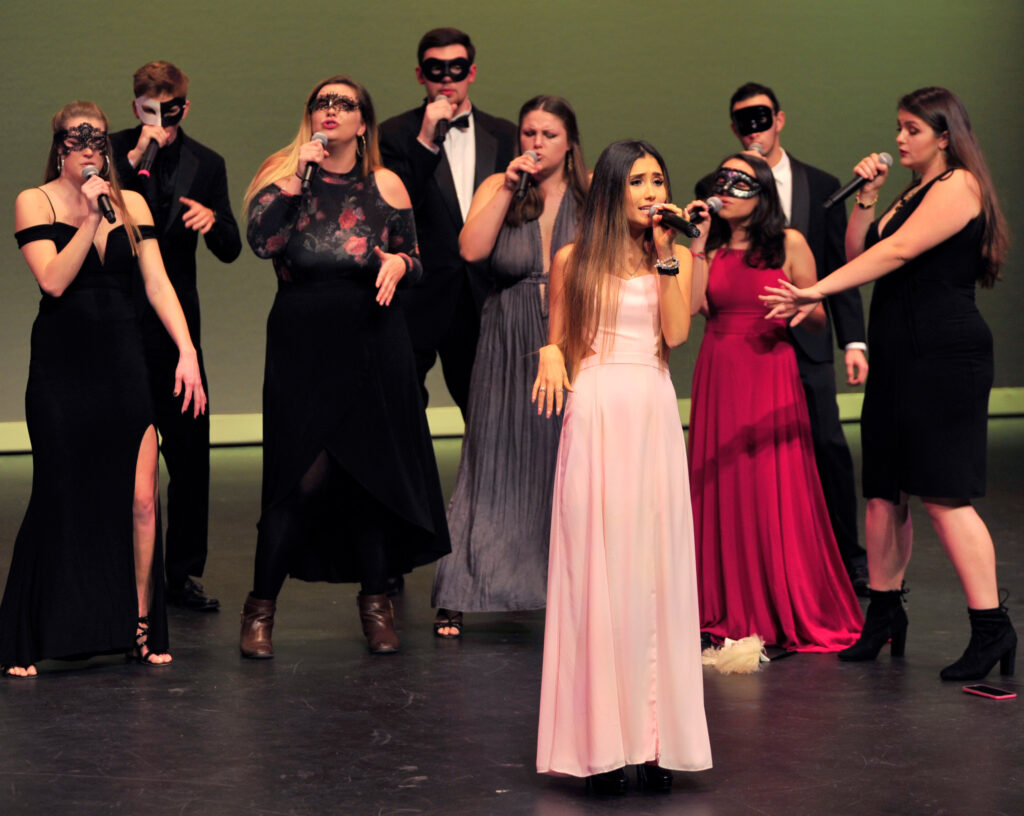
“We’re extremely excited to be able to present ensembles that represent the decades of rich history in our community,” said Stuart Benkert, the Department of Performing Arts and Technology’s department head. “We’ve had a long and rich existence at NC State, and we’ve touched thousands if not hundreds of thousands of lives. We’ve been making art now for over 100 years, and we are excited to celebrate that legacy this year.”
Below is a timeline of significant events in NC State’s music history. For a full timeline, visit historicalstate.lib.ncsu.edu/timelines/music
- 1924 – First Music Director Hired, Music Program Established
Percy W. Price was the first director of NC State’s music department from 1924 to 1933 after taking over the State College Band in 1918. During his time at NC State, Price organized an orchestra, men’s glee club, the Red Coat Marching Band, the honorary music fraternity Mu Beta Psi, a drum and bugle corps, a men’s vocal quartet, a concert band and the ROTC band.
- 1925 – Alma Mater Composed
Class of 1923 alumni Alvin M. Fountain and Bonnie Frank Norris, both in the university’s ROTC program, composed NC State’s “Alma Mater” song.
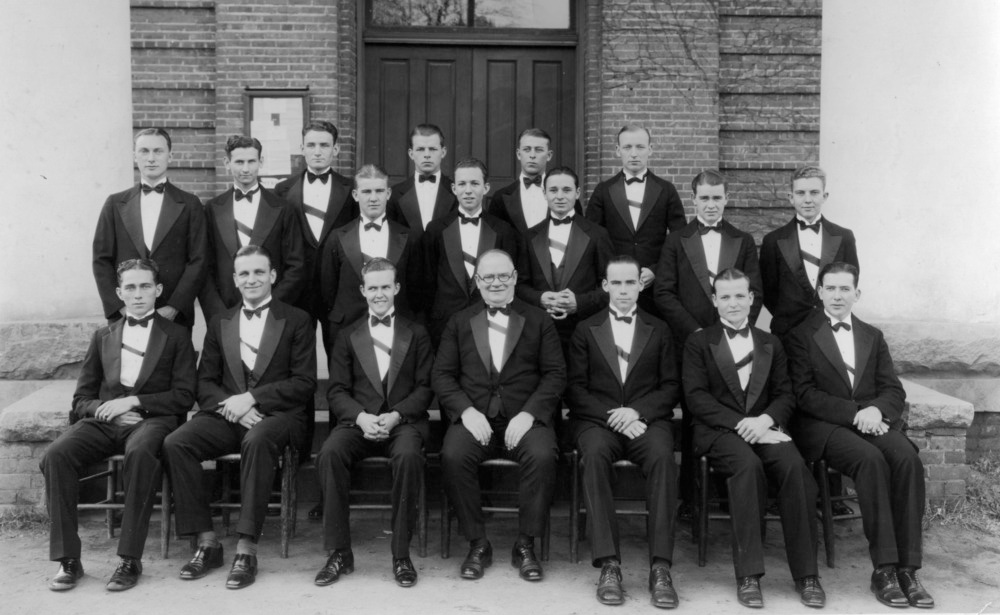
- 1955 – Music Department Placed in Pullen Hall
Robert Barnes, who would become music director two years later, found this space, which was used for rehearsals, practice rooms, offices and storage, and to perform in the ballroom of the newly constructed student union.
- 1967 – University Civic Symphony Orchestra Formed:
J. Perry Watson reorganized the orchestra program and hired James E. Dellinger as a full time faculty member to recruit and train musicians and to organize and conduct a university/civic symphony orchestra. He was successful in establishing a minor symphony orchestra. In 1980, the orchestra was renamed the Raleigh Civic Symphony.
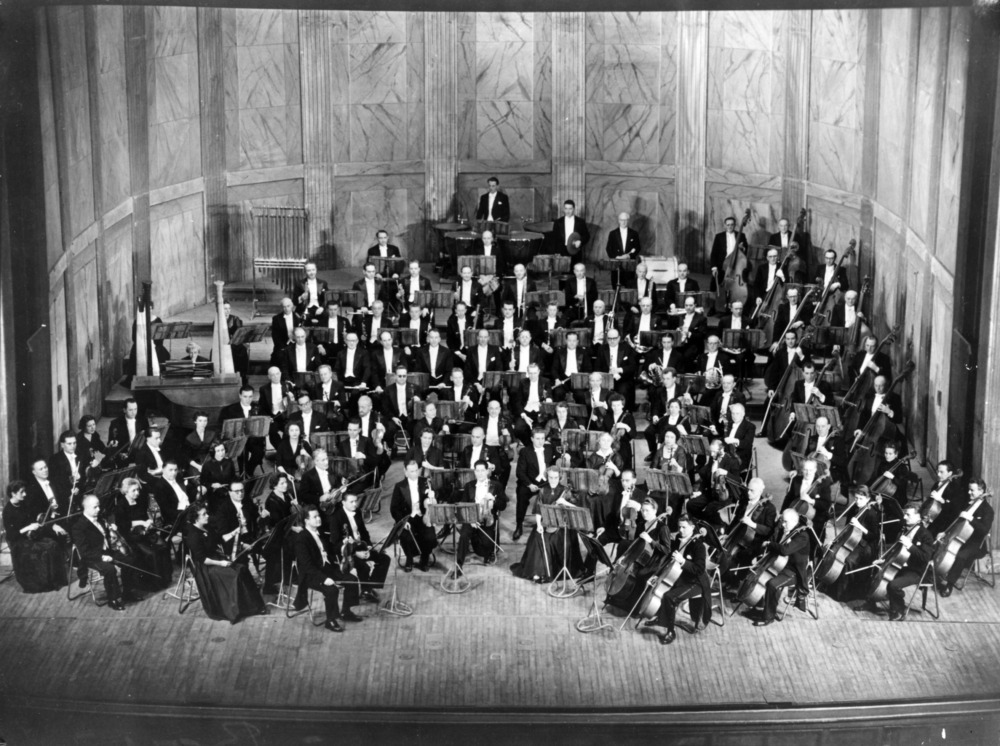
- 1967 – Milton Bliss Organized “The State Men”
This was a versatile group that could sing a capella, be accompanied by a piano or guitar, and sing classical or semiclassical music. “State “Men was changed to “Grains of Time” in 1968.
- 1972-73 – Price Center Opened, Stewart Theatre and Price Music Center Dedicated
Due to the fire in old Pullen Hall, a new building was built and opened specifically for the music department. The center was named after the first director of music, Percy W. Price, in 1973. The two buildings were dedicated during a ceremony at which the NC State University Symphony Orchestra and Choir presented a concert. The 816-seat theater opened during the fall 1972 semester. It was named for James Jackson Stewart Jr., who was dean of Student Affairs from 1954 to 1969.
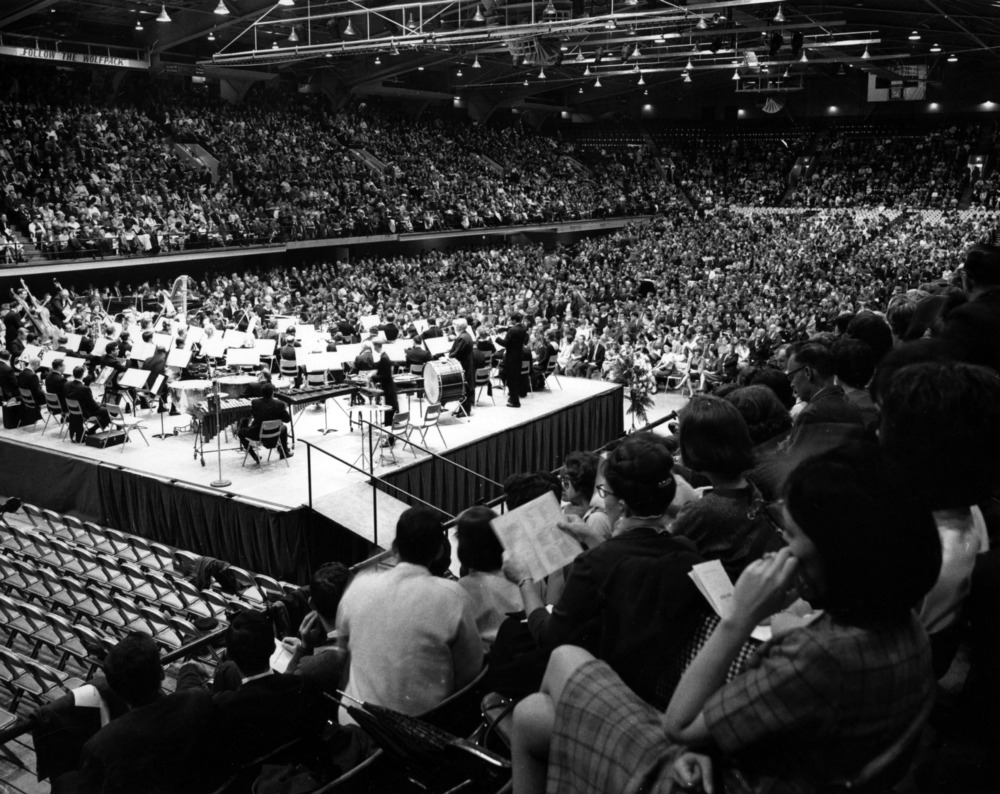
- 1975 – First Woman Hired in Department of Music
Dr. Phyllis Vogel was the first woman hired in the music department, and she established the department’s first music theory courses called “Rudiments of Music.” She taught composition, women in music, applied piano lessons and more. Vogel conducted the chamber singers and performed in recitals.
- 1980 – “Ladies in Red” Organized
This was due to the success of “Grains of Time” and to provide the women’s chorus the same musical education as the men.
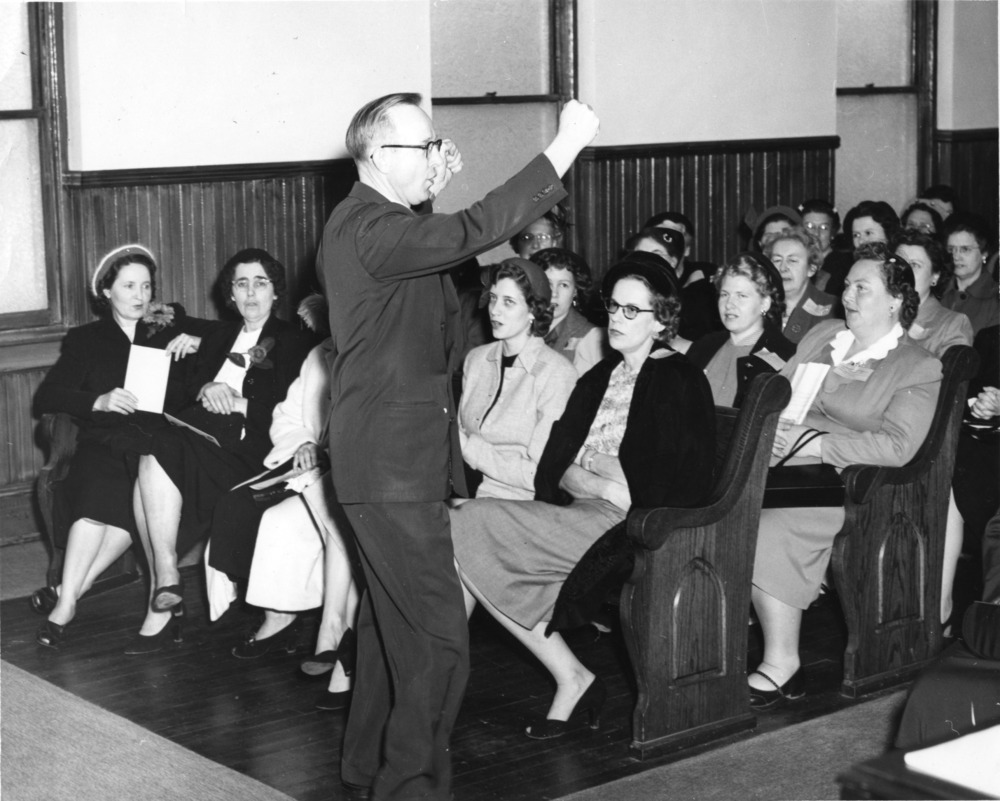
- 1990 – Music Minor Curriculum Established
The minor was established by director Dr. Ronald Toering (1989-1994). The minor offered two tracks in performance and general studies, and there was another minor in arts entrepreneurship.
- Department of Music renamed Department of Performing Arts and Technology
The newly formed Department of Performing Arts and Technology unified arts entrepreneurship, dance, music and created a new degree program in Music Technology.
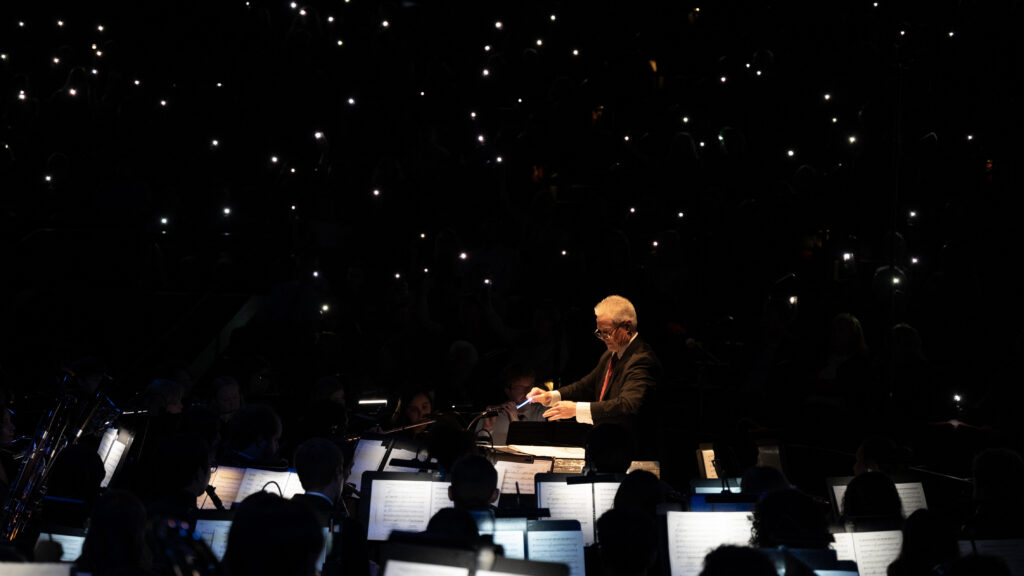
What Makes Music Special at NC State?
Over the course of his career, Benkert has also spent time in various music leadership roles at Colorado State University Pueblo and University of Tennessee at Chattanooga.
Throughout his 30-plus year career, Benkert has interacted with and observed numerous music departments. So, what makes music special at NC State? For Benkert, it’s the way the program brings together students from a wide variety of majors, colleges and disciplines, united by their love and passion for music.
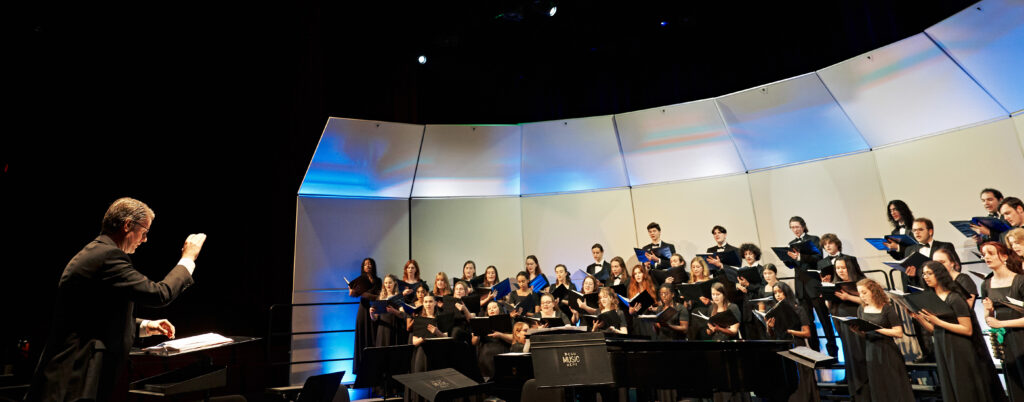
“These are students who are choosing to do something additional with their lives,” Benkert said. “Their careers are going to be in other areas, but art is so important to them that they are taking their time, which they don’t have a lot of, to come spend that with us, to have a musical experience with colleagues, and also present that to the community. We are a college community-based program, we are here for all of the students, not just our majors, and that creates a special dynamic. There’s a lot of energy involved with that. It’s always been like that here. And that’s what sets us apart from others.”
As the department works to continue providing students with transformative experiences throughout their college careers, Benkert praised the leaders of the various music units for the work they do.
I couldn’t ask for a better group of faculty to be here at this time with these students.
“Not only do we have students who are energetic and excited to be here, but we have the right faculty leading those students,” Benkert said. “We have the right faculty plugged in and leading those ensembles. I couldn’t ask for a better group of faculty to be here at this time with these students.”
As DPAT celebrates its history, this year is also an ideal time to celebrate the program’s future.
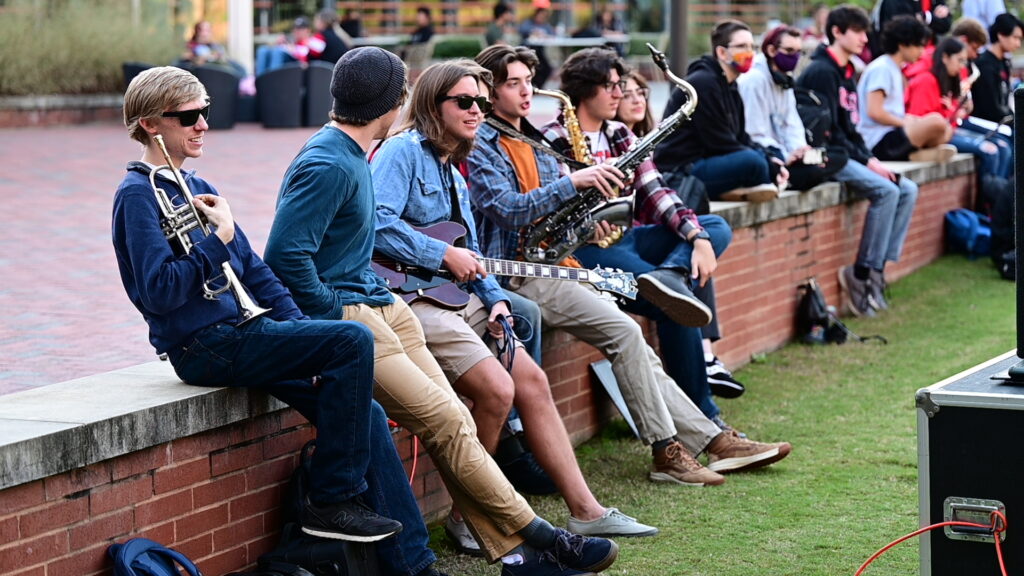
Today, DPAT provides opportunities for students through choirs, concert bands, jazz ensembles, orchestras, the marching band and pep band in addition to a wide range of courses and academic offerings. This is the first year the department has offered a degree, under University College, with the first class of students enrolled in the new music technology major.
“I think it’s wonderful,” Benkert said. “Even though we have a major, it’s not the same kind of major many others are offering. This music technology major is one of only a few in the country. It’s as distinct as NC State. It’s tech forward, but it’s artistic at the same time.”
Read more about the past 100 years of music at NC State, and learn how you can support the efforts and be a part of the experience.
- Categories:
